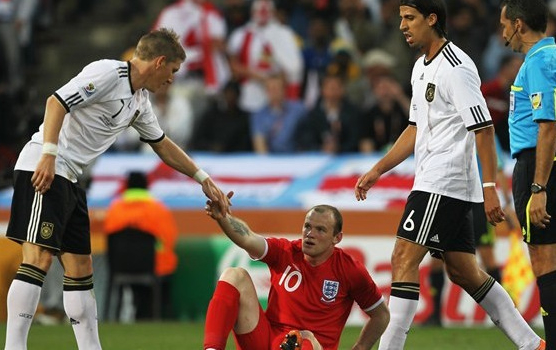The Real World

August 2010 The Psychologist, 23 (8), 621.
We are writing on the morning after the afternoon before. The afternoon that England were dumped out of the World Cup by Germany — England’s worst ever defeat at the World Cup finals. By common consent it was an inept performance, a pitiable display. But does it matter?
For sure, a lot of people will be upset in the short term. For certain there will be an increase in hospital admissions and in absenteeism for a few days. But that probably has to more to do with the amount of alcohol drunk and lack of sun lotion applied during the match than with the match itself. Will England’s defeat have an impact at the collective level? Will it affect the mood of the nation? Will it feed into other domains — the political and the economic? And will the effects endure?
Already the inquests and the diagnoses have begun. The front page of The Guardian sports section carries a quote in huge font that nicely links footballing failure to a more general post-imperial decline: “only the details and venues change in the story of how England impersonate a serious international power…”.
Certainly there is a widespread belief that national sporting performance both reflects and shapes the state of the nation more generally. The clearest example of this is the oft-repeated claim that England’s World Cup success helped Harold Wilson to power in 1966. This is a very good point — undermined only slightly by the fact that the election took place before the World Cup victory.
So can we reject this linking of sport and society? Are we making too much of what, after all, is only a game? As Bill Shankly famously quipped “Football isn’t a matter of life and death — it’s much more important than that”. No Bill. Football means far less to those of us who are not football managers.
So does World Cup success mean everything or does it mean nothing? Perhaps the problem lies less with the answer than with the question – that is, with how we think about the way that events like this might impact on society. Rather than searching for mechanistic and direct relationships, it might be better to think in more metaphorical terms.
That is, England’s footballing prowess (or lack of it) can be worked into a vivid story about the nation in general which can then be used to make sense of other social phenomena. For instance: ‘bloated salaries and poor performance are ruining the nation, we need to work more and pay ourselves less if England is to flourish’; or ‘divided team, failed nation, that’s the story of Cameron’s Britain’; or even ‘too many foreigners, no space for the English to develop in our own clubs’. Note that there is nothing inevitable about any of these metaphors. Importantly, though, they define the phenomenon in very different ways and therefore have very different social and political implications — for supporters of Labour, Conservative, or BNP agendas.
More generally, we should think of ‘events’ and of history less as a determinant of the present and more of as resource which we can draw upon to build our own futures. Human beings are fundamentally sense-making creatures and those who best master the craft of sense making — who are best able to weave past performance into pertinent parables — are best able to craft the society we live in.
But don’t worry. As we turn off the football, we can immediately turn on the tennis. We can look forward to more metaphors and narratives of British grit or of Scottish independence. The sense-making never stops.
The Real World
A Migrant is not a migrant by any other name
October 2015
It's a man's (virtual) world
June 2014
Putin: The Naked Truth
April 2014
Genius and creativity (re)explained
October 2013
In praise of asylums
September 2013